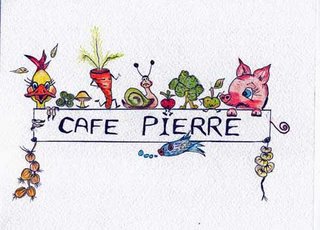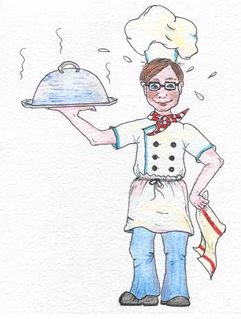Saturday, December 30, 2006
J-1 et ce sera la fin ... de l'année 2006!
Friday, December 15, 2006
Les francais ,'Strike' beaucoup??
Pierre
Joyeux Noel et bonne année!
All the best for Cristmas and New Year
Monday, December 11, 2006
Sunday, December 10, 2006
Accents in France.
Really, a French accent doesn’t exist in France but, rather a great deal of accents according to the different regions. We can consider there are two “families”:
- In the south just under the Limoges-Grenoble line, the accent is said to be the “accent du midi” (southern accent)
- Above this line, people from the south of France say “accent pointu” (northern French accent). I don’t know why!
Of course within these two families there are differences according to the place in these regions, the people who speak and if they live in a town or in the country.
The southern accent is a ‘sing-song accent’ where people say all the vowels in the words distinctly, often stressing them. This accent is more or less harsh if you are in certain areas and in the area of Narbonne, for example, a lot of people roll the rs. If you are not accustomed to this accent, it is difficult to understand, sometimes even for French people! Between Bordeaux and Marseille there are differences but it is almost the same way of speaking.
Above the line, people living in Alsace have a strong accent very close to the German accent. In the other areas there are differences. For example, we can recognise people living in the north of the Alps, Brittany, and in the area of Lille… Of course, in the country, accents are more stressed and sometimes melted into a provincial dialect.
In France, some people say that it is in the area of Tours that people have the best French accent (the purest accent). I don’t know why we say that! On the contrary, in the south of France people say they have the loveliest accent. I think it is a question of taste.
For a foreigner, the accents add difficulties to learning the language, but French people have the same difficulties with the English language! It would be interesting to have diction courses on both sides of the channel taking this data into account.
The different French accents tend to be softened probably because of TV where we don’t normally hear strong accents, the journalists and artists…mainly speak with the ‘Tours’ accent.
Claude
How the wine is produced
1. Red wine:
After picking red or black grapes (not white), the grains are crushed a little so that the juice can flow out naturally. In order to do this, the grapes are passed through two revolving, fluted rollers each spinning in the opposite direction. The grapes and the juice are then put in big, open barrels and stay there for around fifteen days allowing the mixture to ferment. (We sometimes say that it boils!) With the modern technique, the barrels are vats and the fermentation is temperature-controlled by adapted devices (cooling or heating). This sometimes makes the wine better.
Then, the grapes are removed from the big barrel and put into a wine press and all the juice is extracted. After that, the wine is put into smaller wooden barrels so as to allow the suspended particles to settle at the bottom and the wine to take on a little bit of the taste of wood (important parameter).
After some weeks the wine is removed from the top of the barrel, which allow the particles (we say sometimes the mud) to be removed. The wine is put back into the barrel and stays like this for a few months. Then the bottles are filled with this marvellous drink! And the best is to leave the wine in a cellar for a few years before drinking it.
In industrial processes, the wine is not put in barrels but stays in big vats before bottling. Sometimes, wood shavings are put in the vat to add a taste of wood. It is forbidden in France!
2. White wine:
In this case, after picking the white grapes, the grapes are directly pressed and only the juice is put in big barrels or vats so that fermentation takes place. After that, we find almost the same process as for the red wine.
3. Rosé wine:
The process is the same as white wine, but using red or black grapes.
Other processes exist for example for Champagne, sparkling wine, wine obtained with late grape-picking…but they are specific products.
Claude.



